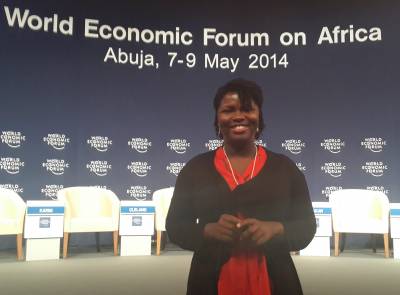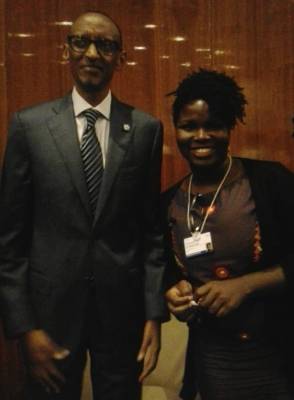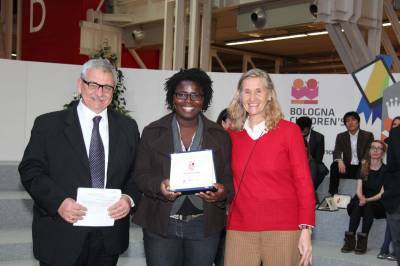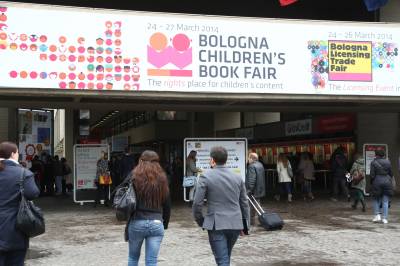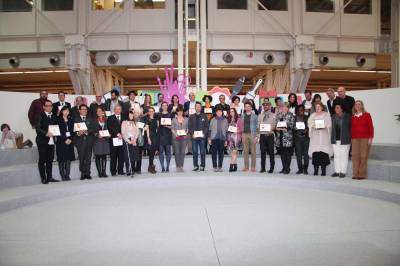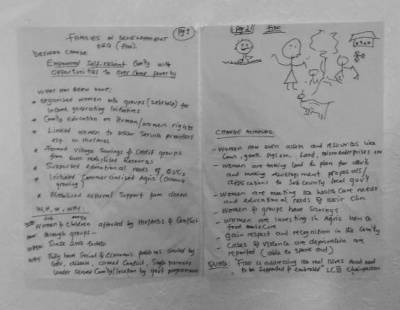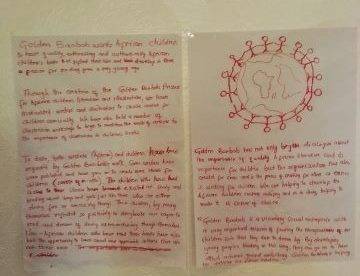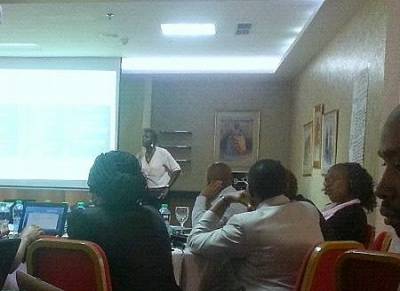Africa Writes 2014, an annual festival of literature that is considered as ‘UK’s biggest celebration of contemporary African writing’, had a special focus on Ama Ata Aidoo, a playwright, poet, novelist and academic from Ghana. Aidoo’s address—conducted in the form of a moderated interview or conversation with translator and critic Wangui wa Goro—was preceded by a short film on her life and literary achievements. Dr. wa Goro had in her introduction said that the aim of the conversation, that she hoped would be ‘our fireside conversation’, was to reflect on Aidoo’s expansive literary career and the main themes that have emerged from her work.
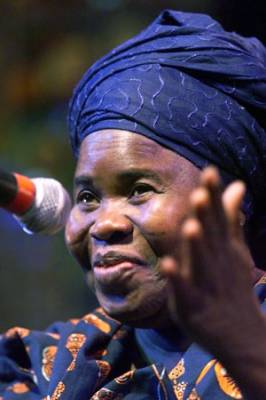
Aidoo is a member of the Advisory Board of the Accra (Ghana)-based Golden Baobab Prize for African Literature. Also attending the annual festival that features book launches, readings, author appearances, panel discussions and workshops for children and youth was Zahrah Nesbitt-Ahmed, a member of the 2014 Golden Baobab Prize for African Literature evaluations team. In describing the event, Zahrah said, “I was fortunate enough to attend Africa Writes with Ama Ata Aidoo - it was one of those situations where you cannot believe you are in the same room and listening to her speak. She is so funny and at the same time seemed like a strong woman who speaks her mind - it was one of those things that I will always remember.” Davida Wulff-Vanderpuije, who provides Public Relations support for Golden Baobab was also present and speaks about the 2014 Africa Writes Festival.
Africa Writes is an annual event; do you attend often?
This year was my second time at Africa Writes festival. I first participated in it in 2013.
What was your impression of Ama Ata Aidoo's interview with wa Goro?
This segment was the highlight for me. I was in enthrall of Ama Ata Aidoo’s verve and engaging personality. She spoke with feeling about each of her works, including an anecdote on how people still haven’t forgiven her for the death of Anowa. As an interviewer, my personal opinion is that wa Goro did not make the most of the broad scope of questions she could have asked AAA. The segment was interspersed with a docu-film on AAA (shot by YabaBlay), and it seemed to me some of her questions had already been addressed by AAA in the film, thus we could have benefitted from other perspectives not covered by the film. In fact, to some of her questions, the witty AAA told her people could easily Google that, confirming to a certain extent, the feeling that parts of the conversation were ‘wasted’ on questions we already knew answers to. However, AAA more than made up for it. She was introduced as a ‘living literary legend’ by wa Goro, and appreciative laughter and applause from the audience say we all agreed. From the moment AAA started to speak, it was obvious we were in the hands of a master storyteller, taking us on the journey of her early life and school days in Wesley Girls High School, to the body of works and teachers who fuelled her passion for writing. Naturally, the WGHS old girls in the audience hooted delightfully with a most unladylike sound at the mention of our great school (or maybe that was just me..:-) In all, it was a great conversation, leaving us feeling like time flew by too quickly and it was over before we knew it.
What were the effects of seeing Ama Ata Aidoo, a Ghanaian, on that platform being interviewed by wa Goro?
I had a very proud moment, because this was the main event of the entire festival. For me, it was the double draw of having not only a Ghanaian, but a leading author whose protagonists have often been women who make radical choices and defy traditional gender roles at that. As she reflected on the main themes of her works of fiction, I got a real sense of her heart and work for the empowerment of women, and it was inspiring too.
What are some of the impacts you think such events will make on the literary scene in Africa?
Africa Writes is fertile ground for showcasing established and emerging talent from Africa and the diaspora, so it brings the knowledge of these writers to a wider audience. The festival has become a big celebration of contemporary African writing that is expanding and pushing new boundaries. This bodes well for the literature scene in Africa. African writers are diverse in their approach to telling their stories, and challenging the very notion of ‘African literature’. This is exciting for the continent and its diaspora because we get the benefit of the rise in genre fiction and the development of different narratives. Crucially, it challenges us to be the authors of our own stories.
It was a real delight when Davida came into contact with the 2013 winner of the Early Chapter Book Prize, Ivor Hartman. Answering the question on how the two of them connected at such a big event, Davida responded:
He was a panelist on a segment titled 'Imagining Future Africa' which discussed the impact of innovation and technology on African sci-fi, speculative and fantasy writing. This was a bold discussion on a genre that writers on the continent are engaging with as they imagine their own futures. After the talk, I approached Ivor and introduced myself in connection with Golden Baobab.
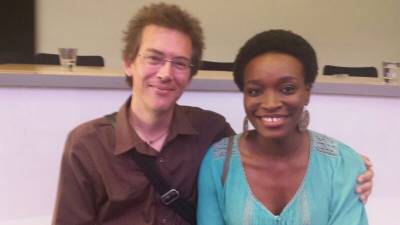
Any concluding remarks?
I'm looking forward to the time when Golden Baobab pitches camp at Africa Writes.
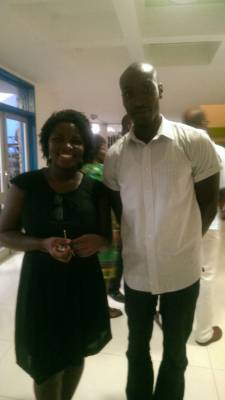
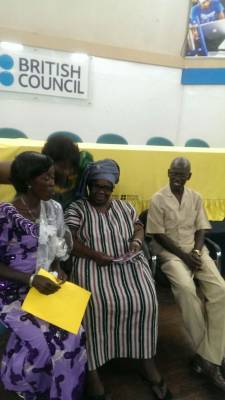
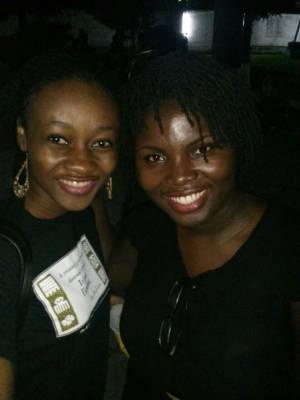






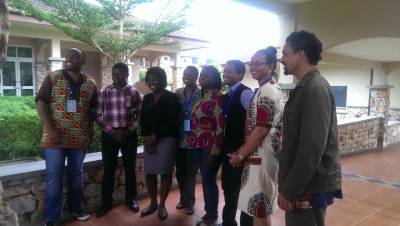
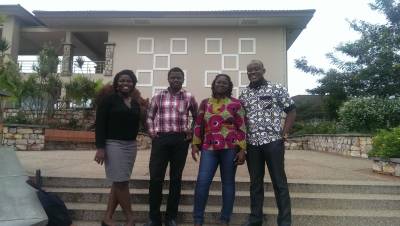
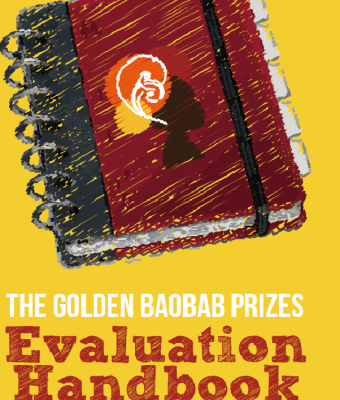 Golden Baobab has begun evaluating stories for the 2014 Literature Prizes. This year, the Prizes received a total of 210 stories from 12 different countries across the continent. The reading season of the evaluation process is in its third week.
Golden Baobab has begun evaluating stories for the 2014 Literature Prizes. This year, the Prizes received a total of 210 stories from 12 different countries across the continent. The reading season of the evaluation process is in its third week.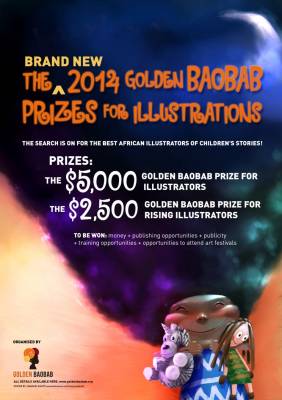 Great news for illustrators, artists and designers in Africa!! Golden Baobab has extended the deadline for submissions to the 2014 Golden Baobab Prize for Illustrators. The new submission deadline is Midnight GMT, Friday, August 22, 2014.
Great news for illustrators, artists and designers in Africa!! Golden Baobab has extended the deadline for submissions to the 2014 Golden Baobab Prize for Illustrators. The new submission deadline is Midnight GMT, Friday, August 22, 2014. 
 Every few weeks, I meet someone who tells me they want to be a writer. Quite often they say they want to write for children or have started writing to give their children something more fun to read. They work in the evenings, after long days behind desks and putting little ones to bed. They tell me they have been workin on it for 6 months or 6 years. All of them want to know how to get published. Many of them imagine it will be much more glamorous and profitable than it’s really likely. Quite a few of them have multiple books they have abandoned, half or a quarter way because they could not find inspiration or had ran out of ideas. I must have met dozens of people with this story in the last 5 years or so. There must be thousands of these hopeful storytellers across Africa but where do all their stories go? Very few of them are ever published by a traditional trade publisher. To be fair, there are very few strictly trade or children’s book publishers on our continent to begin with.
Every few weeks, I meet someone who tells me they want to be a writer. Quite often they say they want to write for children or have started writing to give their children something more fun to read. They work in the evenings, after long days behind desks and putting little ones to bed. They tell me they have been workin on it for 6 months or 6 years. All of them want to know how to get published. Many of them imagine it will be much more glamorous and profitable than it’s really likely. Quite a few of them have multiple books they have abandoned, half or a quarter way because they could not find inspiration or had ran out of ideas. I must have met dozens of people with this story in the last 5 years or so. There must be thousands of these hopeful storytellers across Africa but where do all their stories go? Very few of them are ever published by a traditional trade publisher. To be fair, there are very few strictly trade or children’s book publishers on our continent to begin with.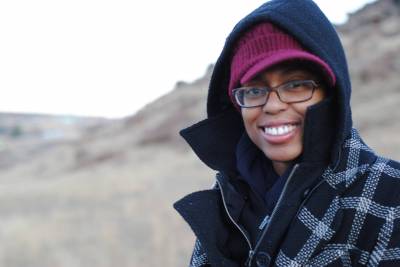 A few weeks ago, we started our search for our very first Golden Baobab Media Fellow! The Golden Baobab Media Fellowship is a highly selective program that provides journalists or journalism students the opportunity to write articles and features to promote the children’s literature scene in Africa, while gaining exposure. We received many impressive applications and we are happy to say that after a thorough evaluation we have settled on our first ever Media Fellow and we are excited to introduce her to you!
A few weeks ago, we started our search for our very first Golden Baobab Media Fellow! The Golden Baobab Media Fellowship is a highly selective program that provides journalists or journalism students the opportunity to write articles and features to promote the children’s literature scene in Africa, while gaining exposure. We received many impressive applications and we are happy to say that after a thorough evaluation we have settled on our first ever Media Fellow and we are excited to introduce her to you!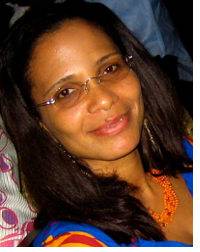 On Saturday, 14th June, 2014, Mamle will facilitate a Master Class on Writing for Children. This Master Class is being organized by Mbaasem in partnership with Golden Baobab and is being funded by The African Women’s Development Fund (AWDF) and The Royal Bank Limited.
On Saturday, 14th June, 2014, Mamle will facilitate a Master Class on Writing for Children. This Master Class is being organized by Mbaasem in partnership with Golden Baobab and is being funded by The African Women’s Development Fund (AWDF) and The Royal Bank Limited.